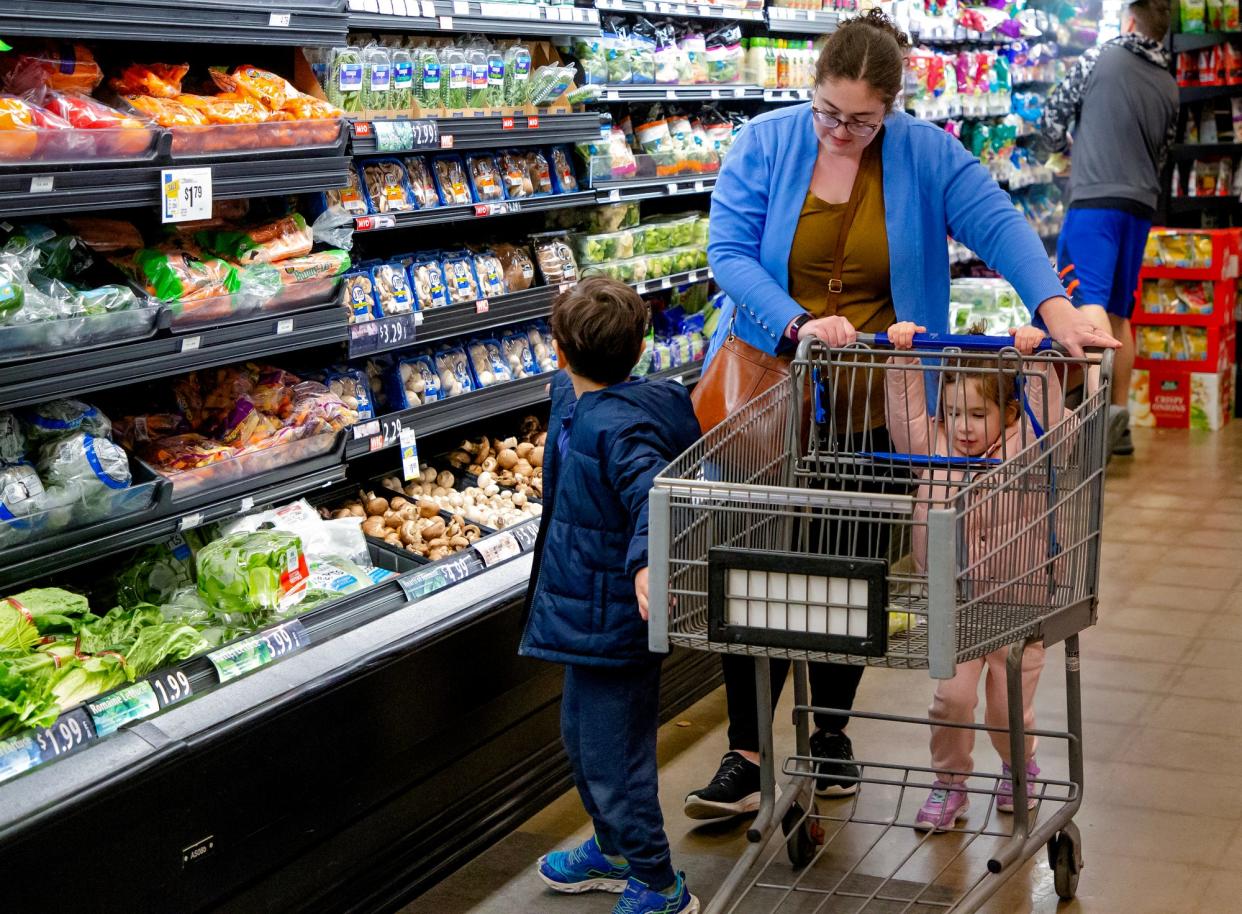Oklahoma governor rejected food aid for children. Now tribes are offering it instead

- Oops!Something went wrong.Please try again later.
A new summer food program helped feed at least one in six Oklahoma children in its first month, after several tribal nations stepped in to distribute federal aid rejected by the governor.
The program pays families up to $120 per child to cover groceries while school is out of session. At least 160,000 school-age children were signed up for the assistance by June, according to numbers from three of the tribes involved.
The U.S. Department of Agriculture’s Summer EBT program is a new effort to combat childhood hunger, which has become a growing issue in Oklahoma and elsewhere as food costs rise faster than paychecks. An estimated 16% to 23% of Oklahoma children experience food insecurity.
But Gov. Kevin Stitt joined several Republican governors in declining to sign the state up to roll out the new Summer EBT assistance. His decision drew pushback and prompted Oklahoma’s largest tribes to distribute the benefits instead.
How many children in Oklahoma are receiving free meals?
The tribes’ involvement made the aid available to tens of thousands of children living across the Cherokee, Chickasaw, Choctaw, Muscogee and Seminole reservations, which cover Tulsa, Ardmore, Durant and most of eastern Oklahoma.
Children who live in those areas and receive free and reduced lunch are eligible, regardless of whether or not they are tribal citizens. Their families can use the money to buy milk, cereal, eggs and other healthy foods.
The Cherokee and Chickasaw nations are taking the lead on administering the benefits, with help from the three other tribes involved in the program and Hunger Free Oklahoma.
The total number of children being served is likely higher than 160,000. That tally does not include any children living on the Chickasaw and Seminole reservations, for instance. Tony Choate, a spokesman for the Chickasaw Nation in Ada, said tribal officials planned to disclose that data at a later time.
More: Tribe joins summer food program, expanding eligibility for thousands of Oklahoma kids
The Osage Nation had also planned to distribute the Summer EBT aid throughout Osage County. But a technical issue made it impossible to offer the benefits this year, and Osage officials hope to launch next year instead, Teresa Bledsoe, the tribe’s secretary of social services, said in late May.
When Stitt opted Oklahoma out of the program in January, he questioned how it would be administered and said the state had other resources to help families facing hunger.
United for Oklahoma, a tribal advocacy group, has touted how tribes stepped in to take Oklahoma’s place. A 15-second commercial produced by the group features Bryan Warner, the deputy principal chief of the Cherokee Nation in Tahlequah.
“When the state decided to not reach out for certain types of funding, the tribes started to notice the void that we had,” Warner says in the ad. “Summer EBT is one of those ways that we can fill that gap, amongst many other things that the tribe does.”
This article originally appeared on Oklahoman: After Oklahoma's governor rejects summer food aid, tribes step in

